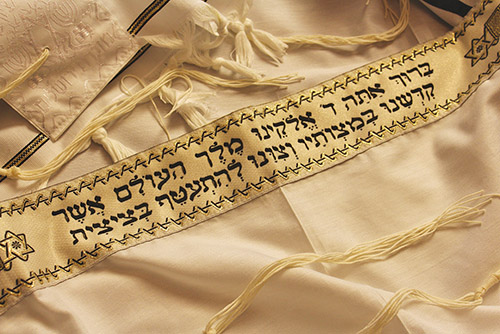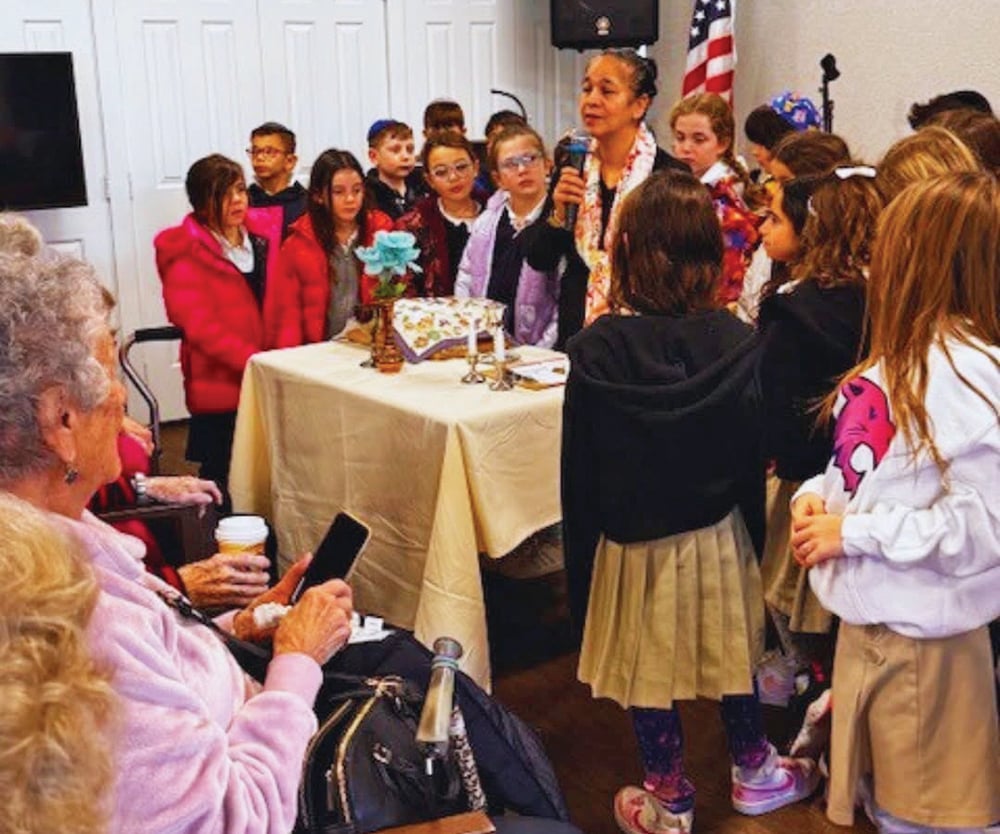
You should not judge a book by its cover but, in some cases, you could judge a Jew by his tallis bag.
For the record, a tallis bag is not really a window into a Jew’s soul. In contrast, a glass slipper can be a window into a person’s sole, a glass bottom boat can be a window into a sea’s sole and a glass bottom airplane can be a window into a certain country’s Seoul.
A tallis bag might be the most important bag a Jew can have, other than a (i) tefillin bag (which is easier than saying “phylactery receptacle”), (ii) shopping bag (especially one filled with shabbos food) and (iii) sandbag (particularly in coastal areas prone to flooding). Of course, for struggling shuls in dire need of funds, few things are more important than having their moneybags.
According to most scholars, there is nothing intrinsically holy about a tallis bag, unless it bears embroidery or other markings warranting special treatment. Putting that exception aside, finding an (empty) tallis bag in a genizah might be as unlikely as finding a fleabag in an upscale neighborhood, a mailbag in a paperless office or a schoolbag in a homeschool setting.
Now, let’s discuss the four major types of tallis bags most often found in a synagogue.
1. Store-Bought
There is nothing wrong with a store-bought tallis bag, even if made by machine. It might lack personality or uniqueness but a non-couture tallis bag deserves respect, as does a non-couture kippah, kittel or fedora.
While utility and durability are the hallmarks of a store-bought tallis bag, unfortunately some people look down on them. They view store-bought tallis bags as pedestrian and uninspired, lacking charisma and heart. That seems like an unfair attitude because the home-made version of an item is not always better. For example, if you need a reliable flame-thrower, hand-glider or nuclear engine, it’s probably better to purchase them from a store rather than from a relative who likes to dabble in fire, flying and fission.
2. Personalized
The next level up is a store-bought tallis bag with some amount of personalization. This would include having your name, in Hebrew and/or English, conspicuously embroidered on the bag so that it never winds up in the lost-and-found. It also would include the addition of a tallis-themed phrase or saying like (i) “This Tallis Has Fringe Benefits,” (ii) “Every Hero Needs a Cape” or (iii) “Shabbat SHAWL-om.”
3. Made in Israel
The status of a store-bought bag is instantly elevated if it was purchased in Eretz Yisroel. This is true if even the same tallis bag can be purchased in Judaica stores the world over. If you bought your tallis bag in Israel, particularly on Ben Yehuda, in Mea She’arim or within the Old City’s Jewish Quarter, then it has instant street cred. If you also haggled over the price but did so like a mensch, then you made your ancestors extremely proud.
4. Hand-made
If we must rank tallis bags, then those made by family members, especially the knitting or crocheting bubbies among us, might be at the top of the list. With every stitch, traditions are sewn together in an unbreakable tapestry of common threads that stretch back to Sinai. In addition, the personal touches of a custom-made tallis bag create a final product that often becomes the recipient’s trademark or calling card in shul. Other congregants may know you simply based on your tallis bag, e.g.:
Congregant #1: “Hey, I know you. You’re the guy with that crazy fish tallis bag!”
Congregant #2: “Yep, that’s me. Guilty as charged.”
Congregant #1: “I’ve been meaning to ask you. Are you a big fan of the band Fish?”
Congregant #2: “No.”
Congregant #1: “Were you born on Fishers Island?”
Congregant #2: “No, but good guess.”
Congregant #1: “Okay, so why do you have a fish on your tallis bag?”
Congregant #2: “My last name is Fishman.”
Congregant #1: “That makes sense.”
Congregant #2: “And My first name is Gill.”
Congregant #1: “Alright Aquaman, I get the point!”
Congregant #2: “And my middle name is Finn.”
Congregant #1: “Well, Mr. Gill Finn Fishman, to me you’ll always be ‘The Guy With the Crazy Fish Tallis Bag.’”
Congregant #2: “That’s fine. My wife made it for me. Her name is Annette and she’s quite a catch. I was hooked the moment I met her.”
Congregant #1: “Oy vey.”
Final thought: In a synagogue, you should not have a talisman but it’s perfectly fine to have a tallis-man.
Send comments or criticism to [email protected].
By Jon Kranz













